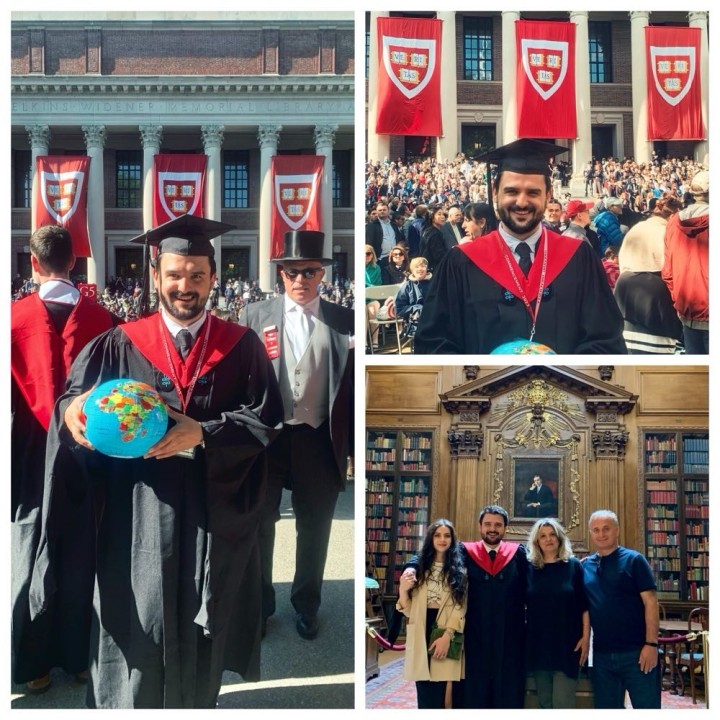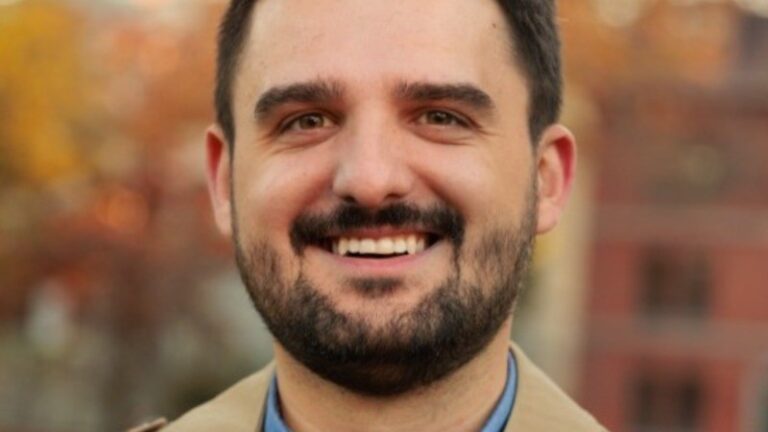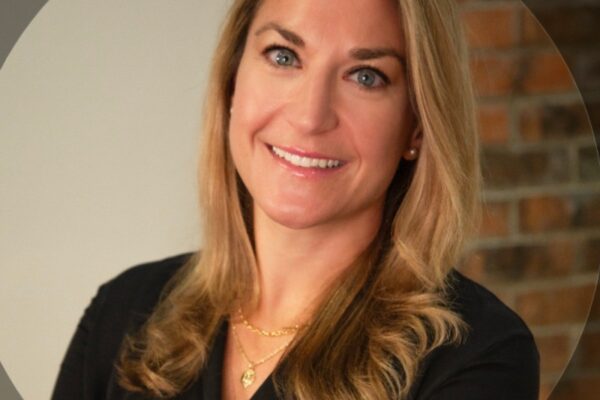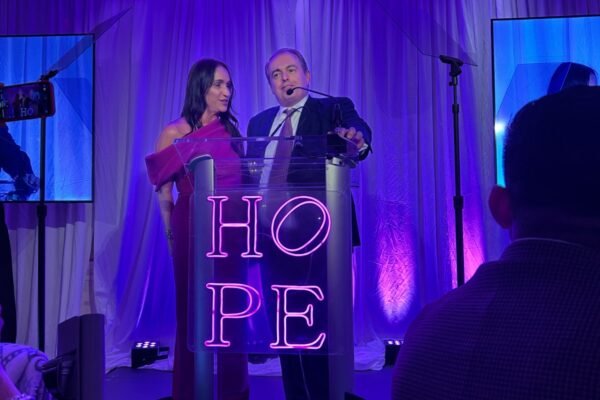From Albana Muçaj
Erblin Ribari, originally from Prishtina, Kosovo, and currently based in Boston, co-founded Manaxo to solve a problem he kept seeing across industries. In his point of view, small and medium-sized businesses were wasting time and energy managing broken systems that never truly worked together. Together with his team, they wanted to build something that actually addressed that frustration. A single platform that brings everything into one place and makes people’s lives easier. “I know what it feels like to build something from the ground up, to wear too many hats, and to fight for every bit of progress. That is who we are building for”, he said.
We had a conversation with him regarding his new startup, and his path as entrepreneur.
Can you tell us a bit about yourself and your background?
I studied at Harvard University, the Massachusetts Institute of Technology, and Imperial College London, where I deepened my understanding of investment management, economic development, and data analytics. I have worked across technology, finance, and public policy, advising organizations like the United Nations, the European Union, and the German and Swiss Development Agencies. In the private sector, I held roles in both investment management and technology at Bulldog Investment, Rackspace Hosting, Kodak Alaris, and most recently at dua AG. Across all of it, my focus has been on building real solutions that support economic inclusion and long-term growth.
As a US Department of State and UK Government Chevening Scholar, I have been recognized as a Presidential Leadership Scholar, an International Strategy Forum Fellow, a Top 100 Under 50 Executive Leader, a European Young Leader 40 Under 40, a Forbes 30 Under 30 honoree, a Warren Buffett Scholar in Value Investing, and a Humanitarian Affairs Peace Ambassador. Each recognition reflects a commitment to building systems that create access, solve real problems, and deliver meaningful domestic and global impact.
Can you tell us about the latest developments in your career? What is Manaxo, and what are you trying to achieve?
After many unforgettable years at dua.com, where we began with nothing but a few PowerPoint slides and a bold dream, I made the decision to build something new. At dua, we raised Seed and Series A, reached millions of people, and created something that mattered. That experience taught me how to build with purpose, how to stay focused, and how to create real value. It also gave me clarity. I knew it was time to take everything I had learned and use it to solve a problem I kept seeing across industries. I wanted to create something that speaks directly to people who are working hard every day to build their own future through their business. That is where the idea for Manaxo came from. As I mentioned earlier, we created Manaxo because small and medium-sized businesses deserve better. Better tools, better connection, and a simpler way to work. Too many business owners are overwhelmed by disconnected systems that drain their time and energy. We are building a single SaaS platform that brings everything together. From managing customers and finances to inventory, team operations, and sales, Manaxo is designed to replace the messy mix of tools that never quite fit together. It is cloud based, secure, easy to use, and built to grow with the business. Our goal is to take away the stress that comes from juggling systems and help business owners focus on what really matters. No more switching tools. No more wasted time. Just a smarter, simpler way to run a business.
What market are you focusing on?
We are building Manaxo for small and medium-sized businesses everywhere. These businesses are the backbone of the global economy, but most of them are stuck using disconnected tools that slow them down. Even in places where digital solutions exist, what is available is often too expensive, too complicated, or spread across systems that do not work well together. Many business owners rely on multiple tools just to manage their daily work. This creates stress, wastes time, and prevents them from focusing on what truly matters. The cost and complexity of managing all this software have become a real barrier, keeping many capable businesses from reaching their full potential.
Right now, we are focusing on North America and Europe as our pilot markets. These regions have a clear need and business owners are looking for simpler and more affordable solutions. But our main vision goes beyond these markets. The challenges we are solving exist everywhere. We want Manaxo to be the platform that any business, in any country, can rely on to stay organized and grow with confidence. We are building one system with fair pricing and dependable support, designed to help people focus on growing their business instead of wasting time managing complicated and disconnected tools.
You have received international recognition from different media. What do you think made you stand out and led to these important acknowledgments?
I do not think it was anything extraordinary that I did alone. I come from a place where success is never guaranteed and opportunities are not always easy to find, but from the beginning, I worked with focus and consistency, and I always knew why I was doing the work. I never chased recognition or titles. I was always trying to build things that solve real problems and create real opportunities for people who are often left out of the conversation. If I stood out, it may be because I kept going, especially when it would have been easier to stop. I stayed close to the problem, listened carefully, worked with people who truly cared, and kept moving even when things became difficult. I was not afraid to reach out or ask for help. I looked for opportunities even when they were hard to see. I failed many times, but I never let that be the end. I never treated a no as the end of the road. I believed that when the mission is real and the purpose is clear, there is always a way forward. People can often sense when something is built with honesty and intention and that may be what made the difference.
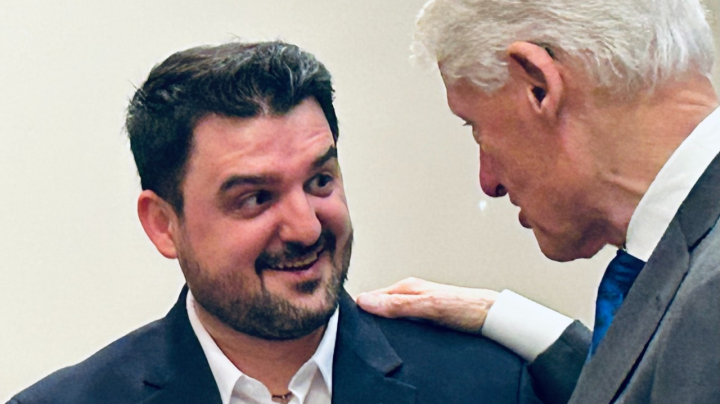
What has influenced your career the most? Your studies or the challenges you’ve faced?
Both played a role, but if I had to choose, it is the challenges that shaped me the most. Growing up in Kosovo, I saw what it means to start with limited resources, to work twice as hard just to be seen, and to keep moving even when the path is unclear. That experience gave me drive, patience, and the ability to keep going without guarantees. It taught me how to adapt, how to stay grounded, and how to figure things out in real time.
My studies gave me access to ideas, people, and institutions that helped me grow. I learned how to understand complex systems, how to think critically, and how to approach problems with a different perspective. But it was the difficult experiences that forced me to apply those lessons. The theory helped, but the pressure, the setbacks, and the responsibility made everything real. Those moments shaped not only what I do, but also how I think and how I lead.
Do you think Albanian-founded startups are achieving the same level of success as those born in top global incubators?
There is a lot of talent among Albanian founders, both in the region and abroad. People are building real products, solving problems that matter, and doing it with very limited resources. The drive is there, the ideas are strong, and the ambition continues to grow. What is often missing is access to the kind of support that helps founders move faster and build stronger. It is not a question of ability, but of environment. Access to early-stage funding, mentorship, and global networks can shape the entire journey of a startup.
Startups coming out of leading incubators in places like San Francisco or London are usually backed by strong ecosystems. They receive support at every stage, from early feedback to growth capital. In many Albanian contexts, founders are doing all of that on their own or with very limited help. That makes the success look different. It may not always make headlines, but it is real. The potential is there, and I believe that with more investment in local ecosystems and stronger connections to global networks, we will see more founders from our region building companies that compete at the highest level.
